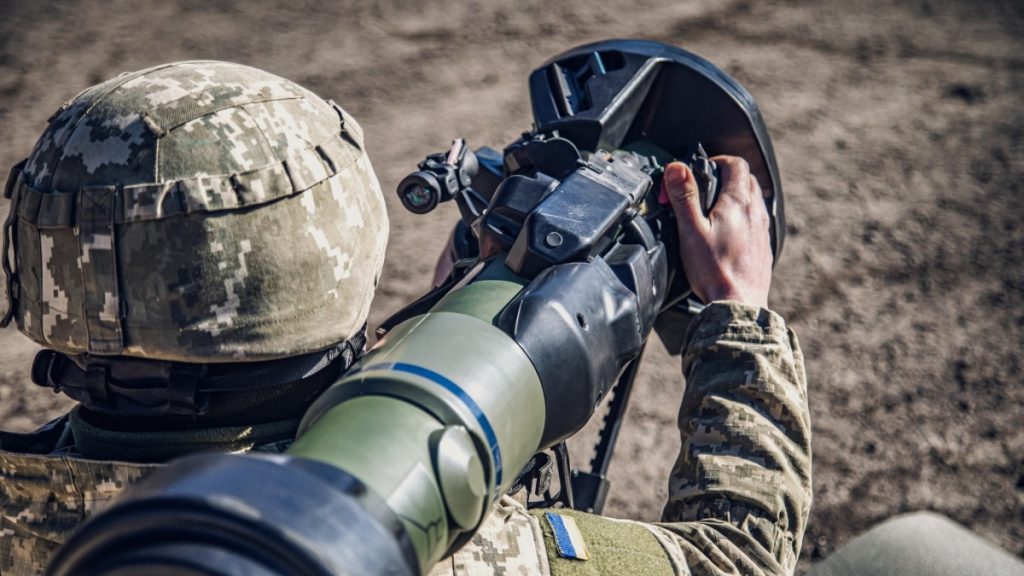The Ukrainian military is reportedly preparing to launch another large-scale offensive against Russian forces in the southeast of the country. The West, for its part, continues supplying Ukraine with all kinds of weapons. But will that help the war-torn nation in its ambitions to establish full control over all territories occupied by Russia, including Crimea?
“I don’t know how tanks will help Ukraine”, said Croatian President Zoran Milanović, talking about German decision to send Leopard tanks to the Eastern European country.
“Maybe Germany is at war with Russia again, then good luck to them, maybe it will work out better than it did 70 years ago”, Milanović ironically stressed, referring to the World War II battles between Nazi Germany and the Soviet Union.
However, modern Russia has very little in common with the Soviet Union. In 1941, the USSR declared a total mobilization of its economy and military. More importantly, it was firmly backed by its Western allies. The Russian Federation, on the other hand, is on its own against Western-sponsored Ukraine. Also, the Kremlin resolutely refuses to conduct at least another wave of partial mobilization, even though Kiev is actively preparing to recapture more territories.
Some Ukrainian officials, however, claim that the Russian President Vladimir Putin has reportedly ordered its troops to seize parts of the Donbass that are still under Ukraine’s control by March. Even some Western publications spread unconfirmed reports of Russia allegedly massing as much as 500,000 troops on the border with the former Soviet republic. In reality, it is Ukraine, rather than Russia, that continues mobilizing troops aiming to launch another military offensive in the near future. Since Ukrainian soldiers are expected to start training on Leopard tanks by mid-February, another hot phase of the war could begin either in the spring, or in early summer.
Meanwhile, Ukraine will undoubtedly continue striking Russian territory and destroying Russia’s military and civilian infrastructure. On February 1, a Ukrainian rocket has reportedly struck Russia’s Druzhba pipeline, supplying oil to Europe. Following the attack, Putin said that the Russian military must stop the shelling of Russia’s region from Ukraine. In the past, he hardly ever reacted to Ukrainian shelling of Belgorod, Bryansk or Kursk, let alone territories that Moscow recently annexed. But since the interests of energy-giants such as Lukoil and Gazprom are major drivers of Russia’s foreign policy, Putin’s reaction suggests that Ukraine has found the Kremlin’s weak spot.
In order to prevent Ukrainian military from shelling Russian territory, Moscow would have to announce a full mobilization, and capture Ukraine’s eastern regions of Chernigov, Kharkov and Sumy. Such an option, given Russia’s defensive strategy, seems very improbable at this point. With the current number of troops – around 300,000 – any Russia’s major offensive is doomed to fail.
The West, on the other hand, continues helping Ukraine to prepare for decisive battles that could change the course of war. After tanks, the Ukrainian Armed Forces will get longer-range missiles, and in the foreseeable future the United States and other NATO countries will supply Kiev with F-16 fighter jets. But how will Russia react?
“We have something to respond with, and it would not be limited to armor use only, everyone must realize that”, said Putin on February 2.
Does that mean that Russia could eventually use nuclear weapons against Western-backed Ukraine?
In case of a large-scale escalation, Russia will likely use tactical nuclear missiles, which will be merely a “demonstration of force”, rather than a serious attempt to destroy the Ukrainian Armed Forces. However, the Western reaction will be severe, and it will not take too long before Ukraine gets tactical nuclear missiles that its army will almost certainly use to hit strategically important Russia’s military infrastructure. But will such actions lead to Ukraine’s final victory?
According to four unnamed US Defense Department officials, Ukrainian forces are unlikely to be able to recapture Crimea from Russian troops in the near future. Since Kiev firmly insists that Ukraine’s main objective is “the full restoration of sovereignty within its recognized 1991 borders”, it is not very probable that the war will end anytime soon.
“We all want this to end, but it’s not the time factor that matters here”, Russian Foreign Minister Sergey Lavrov stressed on February 2.
For the West, the time factor does not seem to matter either. If the United States and its allies wanted to see Ukraine’s quick victory, they would have supplied Kiev with F-16 jets, Leopard and Abrams tanks, and other offensive weapons a long time ago. Thus, both the Kremlin and the West seem to do their best so that the Ukraine war can drag on and last as long as possible.
